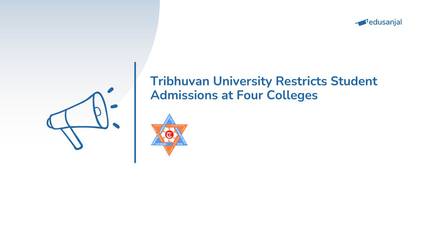In the history of higher education in Nepal Dr. Suresh Raj Sharma has set some record by serving as Vice Chancellor of Kathmandu University (KU) for almost 21 years. There will probably be no such lucky person in the future higher education system of Nepal nor were there any in the past. Dr. Sharma created the institution by himself, of course, with a team that supported him. However, the credit goes to him as the master mind of KU for quality education. He has been able to demonstrate that Nepal can provide quality education to its citizen within its own territory. Today KU stands for quality as a brand name to all its six schools. Now it is everybody’s responsibility to make this institution sustained and developed at par with reputed international educational providers in the globe. The major responsibility goes to the professors and managers of KU who should follow the good steps of Sharma and help boost the image of the institution in the days to come. Nine months back, when Dr. Sharma’s fifth term expired, people were expecting a new leader having Dr. Sharma as their guardian supporting the new leader of KU. However, it could not happen and his term was extended for the sixth term. His well wishers were not happy that time because Dr. Sharma had already contributed the most he could by then. Had that situation prevailed, this unfortunate situation for Dr. Sharma would not have occurred in the Senate meeting on the 9th of November, 2012. The scene that happened in the Senate that day confirms that his resignation was not his wish. Any way this resignation, a peculiar one in Nepal’s history, has some positive and some negative implications for KU. Positively, Dr. Sharma would have got an opportunity to take rest at his age of 72 after 21 years of his hard work to build the institution. Secondly, a new leadership will emerge and KU would get a new direction under the young leader. Thirdly, KU would be known to have been established as an institution purely out of the influence of partisan politics for decades, and it will be more applauded if the new leader can maintain the same in future.Negatively, there may be certain challenges to the new leader when he or she becomes the VC of KU. One, the new one would have to experience difficulty in covering all aspects of KU in the beginning. Two, avoiding partisan politics would be just like chewing an iron rod in Nepal, that tried to disturb KU too in the past couple of years. Third, it would be very unfortunate for the nation if the new VC is picked up from outside the KU system, which is totally a newer system compared to other traditional universities of Nepal. Now the selection committee comprising three members has already been formed under the chairmanship of the Education Minister. It is now the responsibility of the committee to find potential leaders first, discuss with them the agenda they have to let KU grow in future, and recommend those who have creative abilities for the purpose. They should not just discuss among themselves and submit three person’s name to the Chancellor. If they can not break this tradition, there will be no guarantee that the new leader would lead KU in the desired direction. They should be able to select such a person in power who has enough courage to decentralize the system to different Schools giving much autonomy to the Deans, which Dr. Sharma was unable to do. Moreover, the new leader should be able to transform KU from a teaching university to a research university raising funds for the departments and the university as well. Corporate Social Responsibility is another concern of the university which KU has not been able to do much in the past. People around KU, Dhulikhel, Banepa and Panauti municipalities are expecting a lot for their development from KU. In this regard, the new leader must be able to show his or her concern to spend some of KU money for the development of that sector in education, science and technology. The philosophy of KU is good, however, it has been very difficult for the authorities to translate the philosophy to the maximum in practice. Convincing this to the people outside the system has been very difficulty, especially the local political institutions. The local people under the leadership of the local politics ask for employment to each and everyone in the locality forgetting that they have got a golden opportunity to do their business around the university. Another major hurdle from the national politics would be much pressure for affiliation and free education to its cadres. The new leader must know that all the eight medical colleges under KU has been established by the pressure of the Prime Minister in various times. Until today there has been less emphasis on teacher professional development, with exceptionally a few cases. Attracting good people to work for KU would be a great challenge for the new leader. Last but not the least another big challenge to the new leader would be to maintain the quality or even raise it in the days to come. Let us hope for a better KU in future.Dr. Wagley is an educationist












